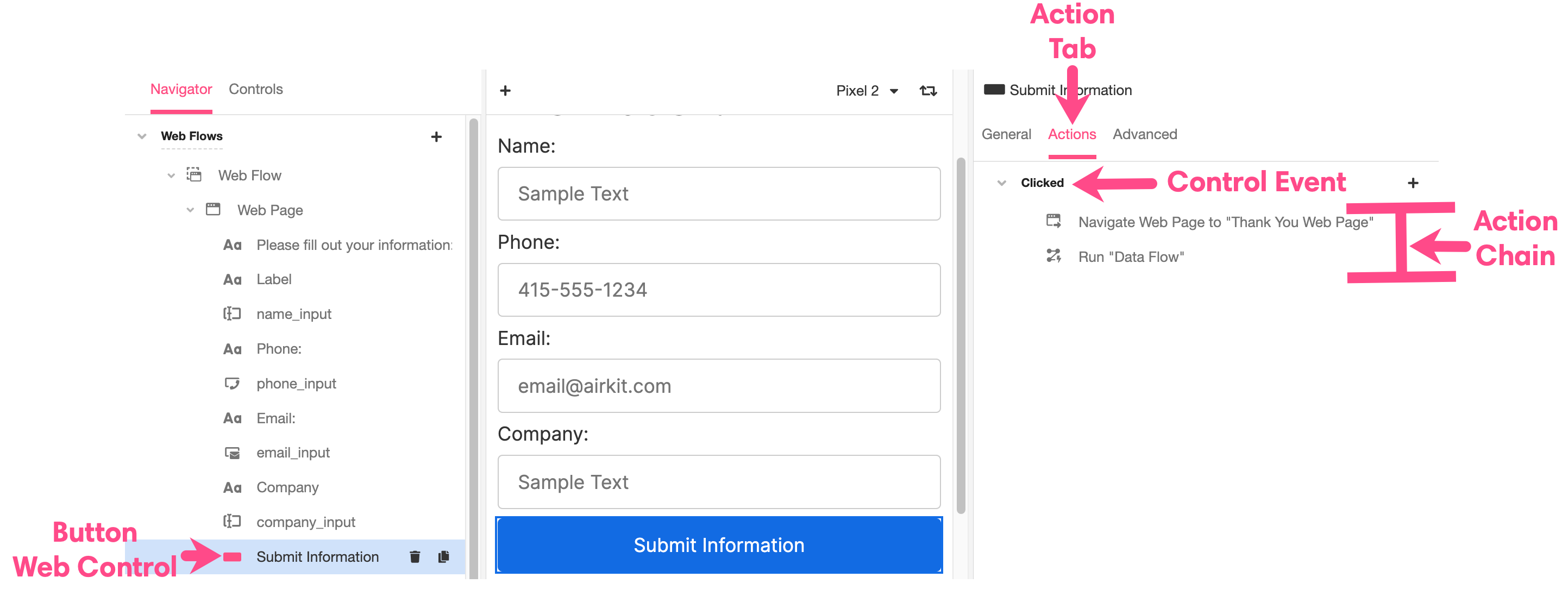Control Events
Control Events are tied to individual Controls and the specific user interactions they allow. Controls that allow for direct users interactions will have an Actions tab in the Inspector. Opening the Action Inspector Tab in this tab will display the Events associated with every type of interaction a user could have with that Control. Separate Action Chains can be built under each Event.
Some Controls, such as the Button, lend themselves to only a single type of interaction (clicking the button), and thus only have one Event ("Click"):

Other Controls, such as Text Input Boxes, lend themselves to being interacted with in multiple ways (clicking on the input box, typing something in the input box, and clicking away from the input box), and thus have multiple Events ("On Blur", "Value Changed", and "On Enter".)
Working with Control Events
Control Events can be found in the Actions tab in the Inspector whenever you're examining a Control that allows direct interaction from users. Be aware that not all Controls allow such direct interaction. The Label Web Control, for instance, provides text that users are intended to read, but users cannot click on the text or otherwise provide it with any direct input.
Controls are found across multiple Builders. As a rule of thumb, Web Controls are accessed in the Web Flows Builder and Dialogue Controls are accessed in the Chat Bots Builder and Voice Bots Builder.
Event Variables
Some Control Events pass information to the Action Chain they trigger. In such cases, this information can be accessed within the associated Action Chain by referencing:
event.valueor simply
valuebecause the event namespace is implied when working in Events.
The format of the information stored in event.value changes depending on the nature of the Event. For a deeper dive into the different structures event.value can take, compare how it is used in Action Chains fired by the Secure Text Input Web Control (in which it contains a string) vs. the Schedule Web Control (in which it contains a Schedule App Object).
Updated 4 months ago